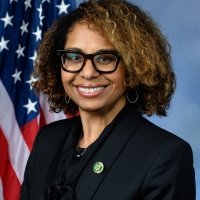Strengthening Cooperation for Amazon Conservation and Climate Solutions
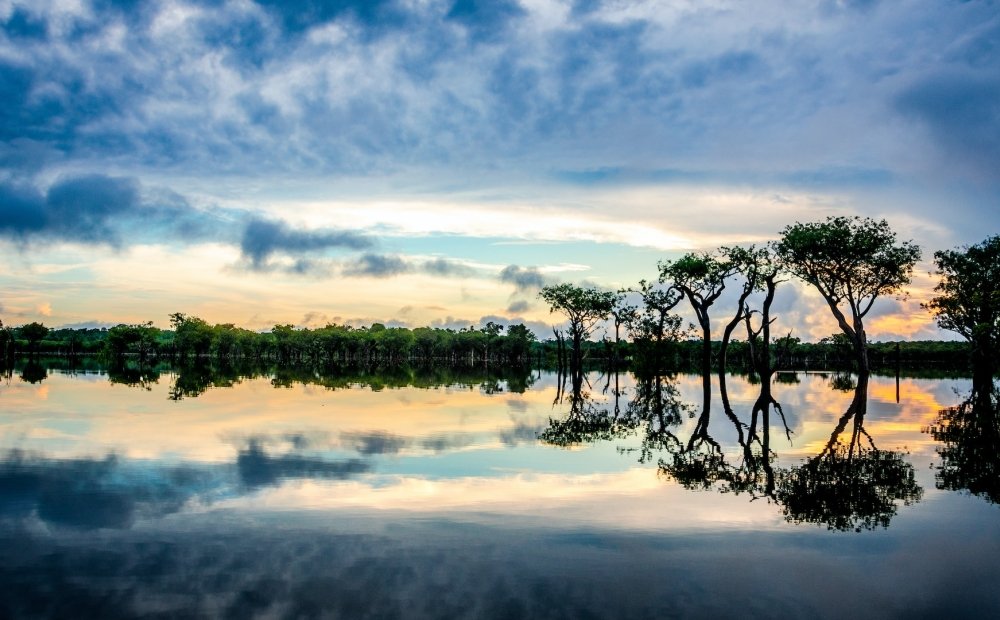
On Wednesday, May 3, 2023, the Brazil Institute of the Wilson Center co-hosted the concluding “Brazil-U.S. Dialogue on Sustainability and Climate Change” dialogue in collaboration with Uma Concertação Pela Amazônia. This virtual conversation brought together members of the Brazilian and U.S. Congress to discuss challenges and potential solutions related to Amazon conservation and the broader climate agenda.
Brazilian Congresswoman Goreth Sousa emphasized the need to consider the quality of life of the Amazonian population when discussing forest preservation. U.S. Congresswoman Kamlager-Dove stressed the responsibility of the U.S. Congress to appropriate funds for climate initiatives, including President Biden’s $500 million pledge to the Amazon Fund.
Both representatives acknowledged the new diplomatic momentum between the Biden and Lula administrations, with a shared commitment to addressing the climate crisis and Amazon conservation. Bruna Santos, director of the Brazil Institute, and Livia Pagotto, executive secretary of the Amazon Concertation, facilitated the conversation, highlighting the importance of the dialogue between over 600 leaders from the public sector, civil society, and private companies. In her initial remarks, Pagotto mentioned that the conversation was an ending mark to several meetings that took place to qualify the discussions around the Amazon region and Sustainability. “This is a very important interchange, we are very glad about this initiative that involves more than 600 leaders from the public sector, civil society, and companies to search for solutions for the challenges of the XXI Century.” Pagotto also signaled that Amazon is the solution and not the problem for these challenges.
The discussion also focused on understanding the diverse needs of different Amazon regions and the challenges faced by native people. Congresswoman Sousa called for the combination of academic knowledge with the experiences of indigenous populations, while Congresswoman Kamlager-Dove noted the lack of concern for native people in the area. Both representatives agreed on the potential for bilateral cooperation between the two countries’ legislatures to strengthen the environmental agenda and ensure the future health of the planet.
Congresswoman Sousa emphasized the importance of distinguishing the different needs of different parts of the Amazon region. “We need to recognize the importance of the biome. We need to understand that there are many ‘Amazons’ and to act in an effective way is necessary to know the differences among the Amazon regions, of which 60% are in the Brazilian territory. We need to look beyond the forest degradation. The region faces challenges in public health, communication, and criminality.”
Congresswoman Sousa encouraged the two countries in bringing to reality what has been discussed in the academia to combine this formal knowledge with the one the native population has been bringing since they are daily resisting the deforestation and degradation effects.
“I want to highlight the importance of this new diplomatic atmosphere that we are living in now between the U.S. and Brazil concerning the Amazon and the climate agenda. We urge to work with evidence because there is lots of romanticism regarding the forest. We need to make an effort to know the people that belong to this biome." She also emphasized the necessity of collective work, shared by the municipality, the state, and the federal government to properly address the challenges”, Congresswoman Sousa said.
Congresswoman Kamlager-Dove signaled that Amazon’s protection guarantees the world’s future. “When we talk about protecting the Amazon and combating deforestation, we are really talking about fighting for the health and future of our planet. The Amazon may be largely located in Brazil, but all of humanity depends upon the rainforest for survival, and without it functioning as a natural carbon sink, we cannot keep global warming below the tipping point of 1.5 degrees Celsius,” Congresswoman Kamlager-Dove mentioned.
While calling for the role of the U.S. on this task, she affirmed that the U.S. Congress must do its part on appropriate funds. “For international climate finance, including the $500 million Biden pledged for the revived Amazon Fund. I certainly hope that this Congress has the courage to do that. The power of the purse is a serious responsibility, and it is our job to ensure the United States lives up to our global commitments and obligations. Our climate-minded partners and allies also have the duty to contribute funding resources and political capital to combat deforestation and I applaud Norway and Germany for their continued dedication to the Amazon protection”, she said.
Agreeing with Congresswoman Sousa, Congresswoman Kamlager-Dove also pointed out that there is a lack of concern for the native population in the region. “This disdain for the Amazon as a life force and the rights of indigenous tribes who call the rainforest their home did not lead to economic development and prosperity. … In fact, indigenous communities with diseases pillage the Amazon’s resources for personal financial gain, it sounds like something we have heard over and over repeatedly in the history of so many indigenous black and brown peoples.”
In their final remarks, both representatives mentioned that there is a valuable opportunity for the two countries’ legislatures to engage in bilateral cooperation to strengthen the environmental agenda.
Speakers
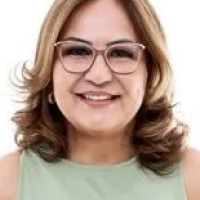
Moderators
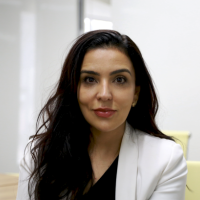
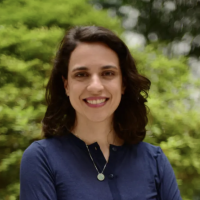
Hosted By

Brazil Institute
The Brazil Institute—the only country-specific policy institution focused on Brazil in Washington—aims to deepen understanding of Brazil’s complex landscape and strengthen relations between Brazilian and US institutions across all sectors. Read more

